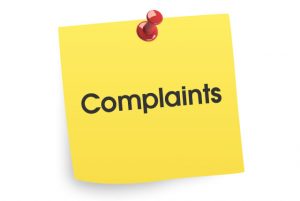
Office of the Independent Assessor (OIA)
It is vital that Queenslanders trust in their system of local government. Queensland’s councillor conduct complaints process supports everyday people and local governments to hold Councillors and Mayors accountable to the communities they serve.
By reporting misconduct, you are playing a vital role in helping to make local governments stronger. The Independent Assessor will assess and may investigate your complaint. If evidence indicates that a Councillor or Mayor’s behaviour is misconduct the Councillor Conduct Tribunal will hear the matter and impose the appropriate sanction.
OIA web site
>> OIA update
The State Development and Regional Industries Committee’s inquiry into the Independent Assessor and councillor conduct complaints system was completed recently. The committee tabled Report No. 28, 57th Parliament – Inquiry into the Independent Assessor and councillor conduct complaints system on Friday, 14 October 2022. The report link can be found below.
Documents relating to the committee’s inquiry, including transcripts and submissions can be viewed on the inquiry page of the committee’s website.
Inquiry into the Independent Assessor and councillor conduct complaints system, October 2022
OIA legislation
The activities of the OIA are governed by the Local Government Act 2009 (Chapter 5A>Part 5>Division 1).
The Local Government (Councillor Complaints) and Other Legislation Amendment Act 2018 established the OIA to manage councillor conduct complaints for local governments across Queensland, excluding Brisbane City Council (BCC) at that time.
On 30 March 2020, provisions in the Local Government Electoral (Implementing Stage 2 of Belcarra) and Other Legislation Amendment Bill 2019 came into effect which brought BCC under the OIA’s jurisdiction.
As of this date the OIA’s remit covered all 77 local governments in Queensland. The Independent Assessor (IA) reports directly to the Minister with responsibility for Local Government.
What is your complaint?
- The Independent Assessor only deals with conduct complaints against councillors and mayors.
- Refers complaints about the conduct of local government staff to the relevant council.
- Refers complaints about a decision of council to the Ombudsman.
Complaint assessment and investigator process flowcharts
Conduct complaint form – for lodging your complaint online
Other complaint bodies
What constitutes a councillor conduct complaint?
Councillor conduct is divided into four categories:
1 Unsuitable meeting conduct
Unsuitable meeting conduct is handled by a council in the council meeting. It is unsuitable meeting conduct when a councillor, in a council meeting, contravenes the code of conduct or a council policy.
2 Inappropriate conduct
Inappropriate conduct must be referred by councils to the Independent Assessor. It is inappropriate conduct when a councillor contravenes a behavioural standard (a breach of the councillor code of conduct), or a policy, procedure or resolution of council, an order of the chairperson of a council meeting to leave and stay away, or when a councillor received orders for unsuitable meeting conduct three times in one year.
Code of conduct for Queensland councillors
3 Misconduct
Misconduct is handled by the Independent Assessor, with the complaint heard by the Councillor Conduct Tribunal. It is misconduct when a councillor is dishonest or biased in the exercise of their powers.
Behaviours categorised as misconduct include:
- breaches of trust
- misuse of information or material acquired in or in connection with the performance of the councillor’s function for the benefit or detriment of the councillor or another person
- giving directions to local government employees
- releasing information confidential to council
- failing to report suspected conflicts of interest of other councillors
- failing to comply with an order of the council or the Councillor Conduct Tribunal
- failing to comply with acceptable request guidelines of the council
- failing to comply with a council policy about the reimbursement of expenses
- being disciplined for inappropriate conduct three times in one year.
4 Corrupt conduct
Corrupt conduct is handled by the Crime and Corruption Commission. Corrupt conduct is behaviour that:
- adversely affects or could adversely affect the performance of functions or the exercise of powers of the councillor; and
- is not honest or impartial; or
- results or could result directly or indirectly in the performance of functions or the exercise of a councillor’s powers in a way that is
- not honest or impartial; or
- a breach of trust placed in the councillor; or
- a misuse of information acquired by the councillor; and
- is engaged in to the benefit or detriment of a person; and
- if proven, would be a criminal offence.
